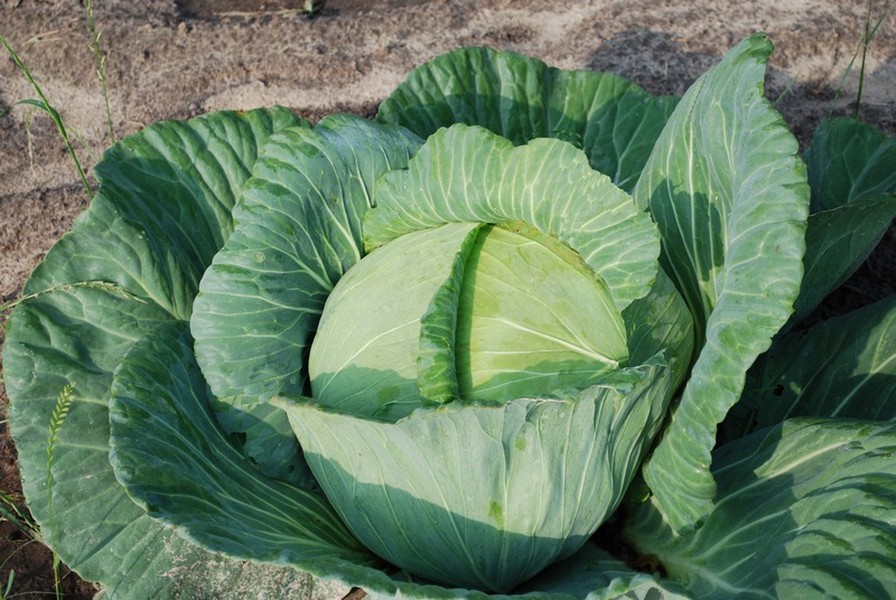
To keep your cabbage growing and healthy, you’ll need to take care of it properly. Use the information below to guide you to harvesting a happy, healthy cabbage!
Be sure you’ve planted your cabbage properly. Use steps to plant, from our “Planting Your Cabbage” page.
Once your cabbage is planted:
Let the sunshine in: Cabbages need full sun – at least six to eight hours of direct sunlight per day.
Water wisely: It’s best to water in the morning and at the base of the plant (soil level) keeping the foliage dry. Plants should be watered when the top 2 inches of the soil becomes dry to the touch. To test, just stick your finger or a pencil about 2 inches down, where the stem enters the soil. If the soil is dry, 2” down, it’s time to water, if wet, wait until the soil is dry. Be careful not to over-water, as over-watering can cause problems, such as root rot, especially in containers or raised beds.
Feed your food plant: All edible plants draw nutrients from the soil which can quickly exhaust and deplete it without the help of a fertilizer. Working together with an adult, feed your cabbage with Miracle-Gro® Shake ‘n Feed® Tomato, Fruit & Vegetable Plant Food or another fertilizer, specifically formulated for vegetables and always follow label directions for rates and intervals.
Make use of mulch: Use a 3” layer of mulch around the base of your plants which will help keep moisture in, prevent splashing up of the soil onto the plant’s leaves and deflect some light and heat from intense sunlight too.
Pull the weeds: Check for and pull any weeds growing around your cabbage. Weeds steal water and nutrients from your plant and can harbor insects and bacteria!
Patrol for pests: Scout on the underside of the big cabbage leaves often, where insect pests and worms like to hide. If you find insects or worms, hand-pick pests and drop them in a bucket of soapy water or dislodge them with a jet of water from the hose. If you find a constant invasion, try using a horticultural soap or oil, like Neem Oil to eliminate them. Always use control products late in the day when beneficial insects are less active.
Cover from cold: While cabbages likes cool weather, young transplants can be harmed by freezing temperatures. If temperature dip below 32 degrees Fahrenheit, cover your cabbage with a bucket or a frost cloth. Be sure to remove either when temperatures rise during the daytime.
Find more info on the How to Grow Cabbage page on the Bonnie Plants website.
